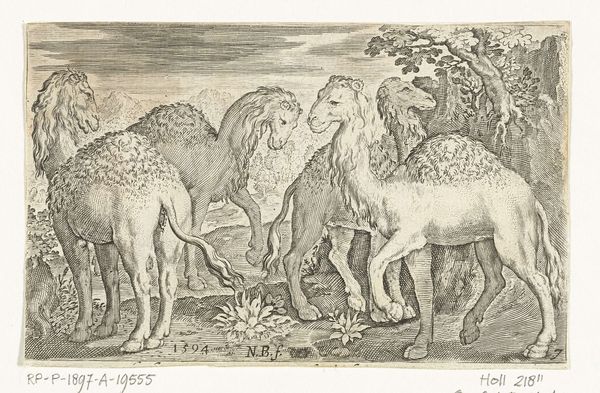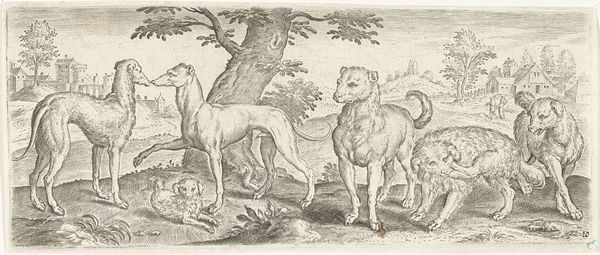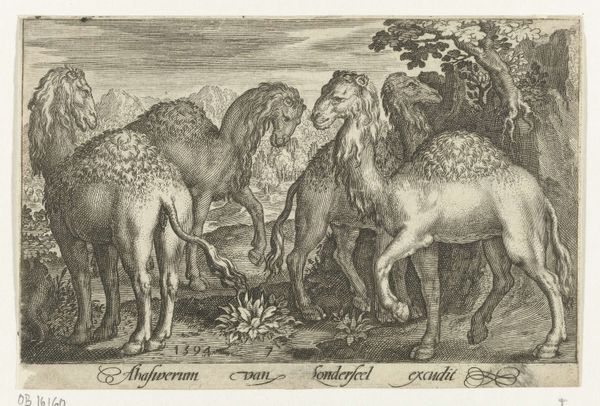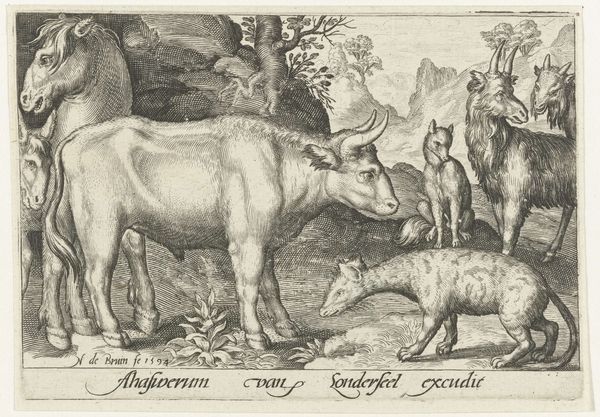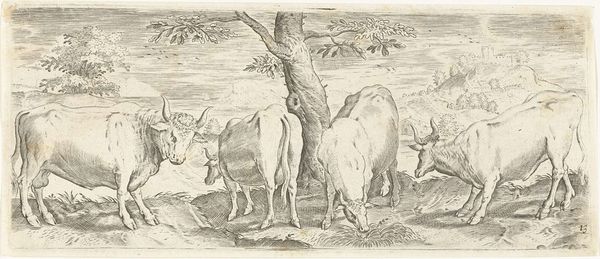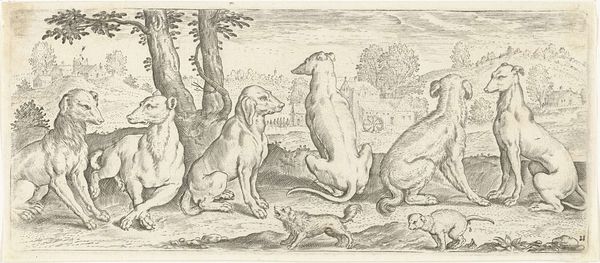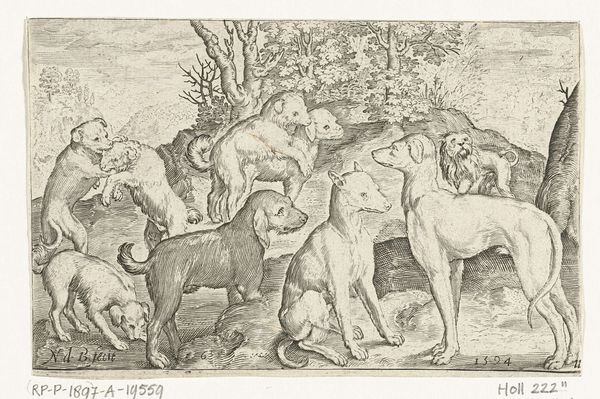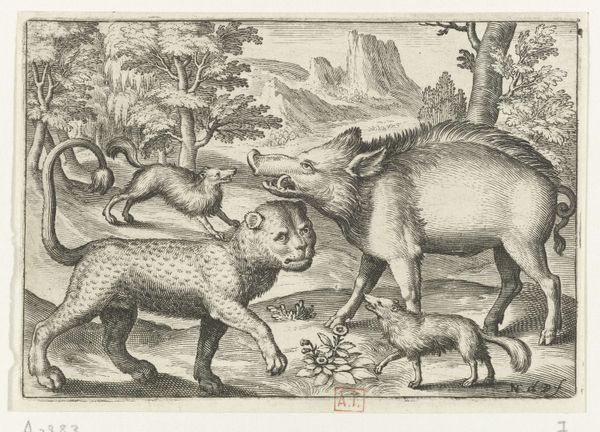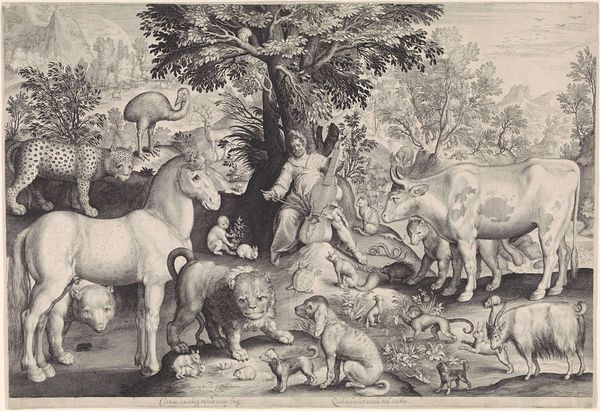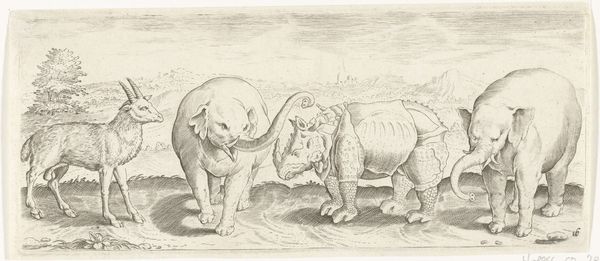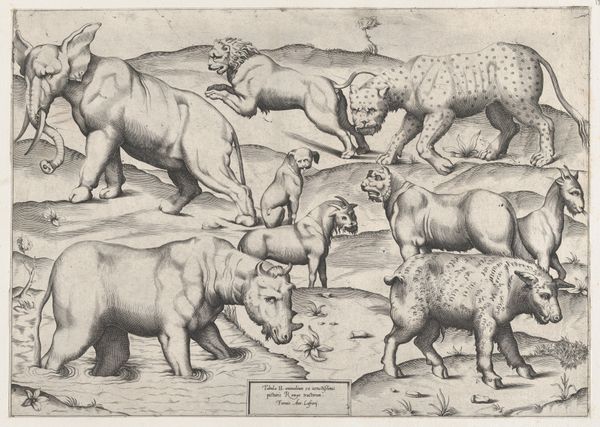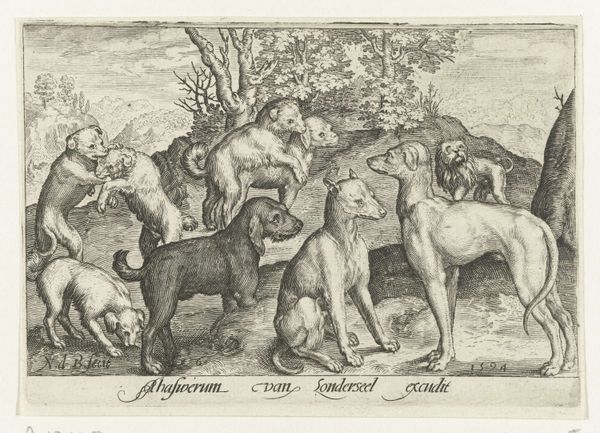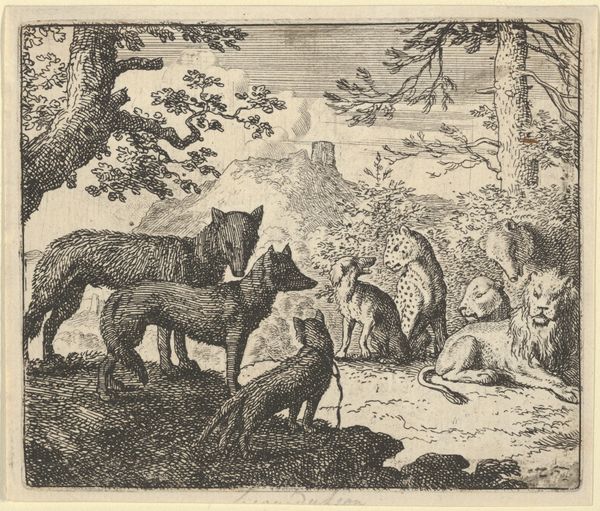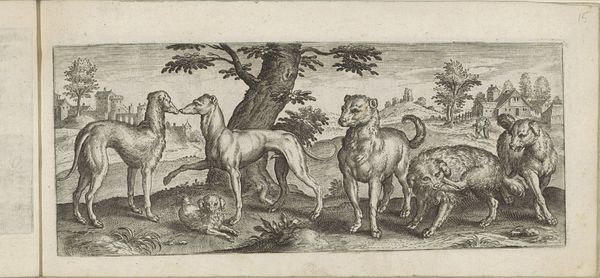
drawing, print, etching, ink, engraving
#
drawing
#
baroque
#
animal
# print
#
etching
#
ink
#
genre-painting
#
northern-renaissance
#
engraving
Dimensions: height 88 mm, width 128 mm
Copyright: Rijks Museum: Open Domain
This print, titled "Stier en ander vee en hyena", was made in 1594 by Nicolaes de Bruyn. It is an etching, a printmaking process using acid to create lines in a metal plate, which is then inked and pressed onto paper. The striking detail achieved through etching gives the animals depicted a palpable sense of life. You can almost feel the weight of the bull, the rough texture of the goat's coat, and the slyness of the hyena. Etching was a popular technique in the 16th century. It allowed for relatively quick reproduction of images, making art more accessible to a wider audience. This commercial aspect of printmaking, driven by growing urban markets, is key to understanding its appeal. The lines that define the animals, the landscapes, and the natural world also reflected the world of commerce, labour and a capitalist mode of production that makes art more accessible to a wider audience. The detailed rendering and distribution of prints such as these challenges the traditional hierarchy between art and craft, demonstrating that skilled making can be both commercially viable and aesthetically rich.
Comments
No comments
Be the first to comment and join the conversation on the ultimate creative platform.
